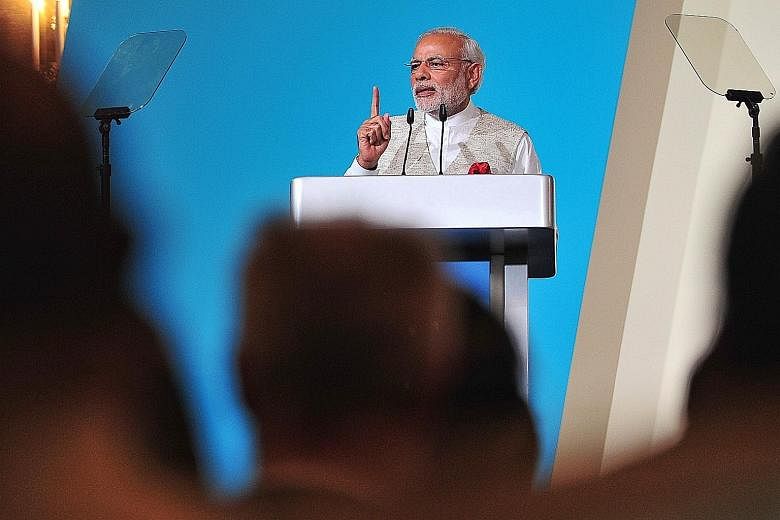MUMBAI • Developing countries are looking to Indian Prime Minister Narendra Modi to champion their interests in winning funds to mitigate the worst effects of climate change.
Richer countries, including the United States, are wary India could end up scuttling any deal.
For Mr Modi, it is an opportunity to claim his spot among the world's top statesmen by crafting a solution to one of the biggest risks facing humanity, and he is unlikely to pass that up.
"He wants to project India - and himself - as a problem solver, not a blocker," said Professor Sreeram Sundar Chaulia, dean of the Jindal School of International Affairs near New Delhi.
So far, Mr Modi's approach has amounted to more style than substance. His top diplomat has called the talks India's biggest negotiation of the year, a new website is providing round-the-clock updates on India's green credentials, and Mr Modi has cast himself as the standard-bearer for developing nations.
Yet, at the same time, Mr Modi has set a target for reducing emissions that is so low the world's third-largest polluter will meet it without committing to anything new. That is what most worries the US, which last year reached a breakthrough with China, increasing pressure on India to take action.
US Secretary of State John Kerry told the Financial Times earlier this month that India poses "a challenge" to the negotiations, particularly regarding its desire to continue burning low-grade, domestic coal. But Indian Environment Minister Prakash Javadekar said the statement was "unfair and untrue", and that the US uses triple the amount of coal that India does despite finding shale gas.
India's size makes it essential to any meaningful deal. The country now has 1.3 billion people, and is set to overtake China as the world's most populous country by 2022.
Currently, about 60 per cent of its power comes from coal. By 2040, India will have the fastest-growing electricity demand among major economies, and be the top driver of global coal demand, according to the International Energy Agency.
"India needs to limit the amount of coal-fired power generation," said Ms Karlien Wouters, a climate policy analyst at research firm Ecofys.
China last year agreed to peak its carbon emissions in 2030.
To his credit, Mr Modi boosted India's renewable energy target by nearly five-fold after taking office in May last year, and is set to spearhead an alliance of 110 nations that aims to expand the use of solar energy in the tropics.
BLOOMBERG

